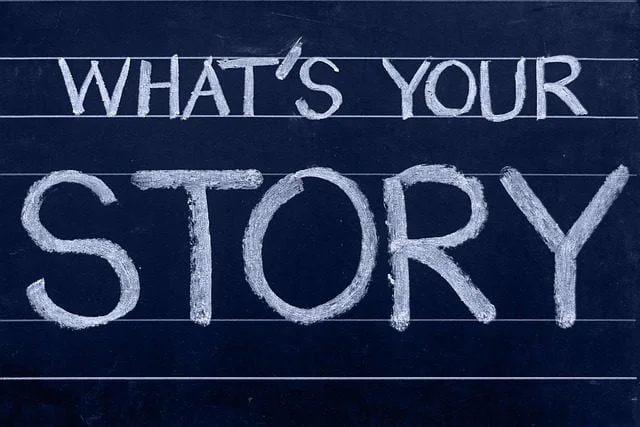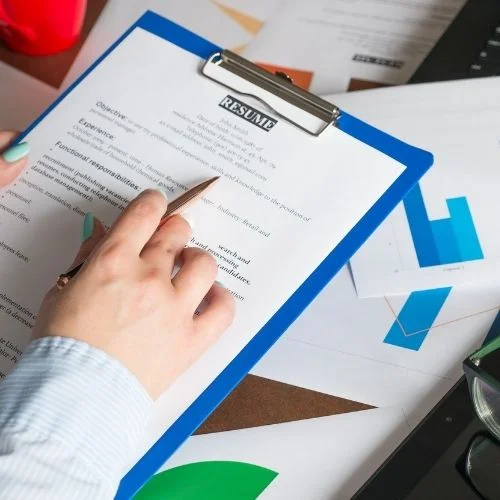The interview is the first step in the onboarding process of new employees. It’s their first real experience with the company. Not only are you interviewing the prospective employee but many times they are interviewing you and the company to determine if they want to work there. Good interviewing skills and how you conduct an interview can mean the difference between hiring an awesome employee or having them move on to another company.
Being an inexperienced interviewer can make conducting an interview seem like a daunting task. In this article, you learn employer interview techniques and steps to make you look like a skilled interviewer and find the right candidate. Also included you will find sample interview questions for managers to help you through the interview and find the ideal candidate.
Jump To Section
Good Employer Interview Skills for Success
- Communication Skills
Good communication skills are very useful in many aspects of your life and interviewing is no different. An interview boils down to a conversation between you and the prospective employee. Check out this article to learn how to become an awesome communicator.
- Calm Demeanor
During interviews, you should exhibit a calm demeanor. Candidates will often be nervous so your calm demeanor will help put them at ease. A calm demeanor will encourage candidates more likely you are to see the true person, ensuring you get the best interview out of them or at least a more accurate interview.
- Professionalism
Professionalism is a must during an interview. Not only are you interviewing the candidate but the candidate is also deciding whether they want to work for you and the company. Even if the job is considered a blue-collar position, a professional image can help set the tone for a skilled interviewer. Click the link for more advice on presenting an excellent professional image.
- Flexibility
Interviews don’t always go as planned. Flexibility is one of the vital interviewing skills. Be flexible and ready to adapt. You should have a plan and maybe even a script but don’t be afraid to go with the flow of the interview. Sometimes candidates will go more in-depth on something you ask or you may want more information on something they say.
- Humility
As the interviewer, you have the power in the situation but that doesn’t mean you should act that way. It’s your job to facilitate the conversation and keep the interview moving. Be respectful and remember that the person you are talking to is a person too. You may have been that person on the other side of the interview and might be again in the future. Treat the people you interview, the same way you want to be treated when you’re on the other side.
For more information on leadership qualities and how they will improve your interview persona click the link.
Steps to Conduct an Effective Interview

Stage 1: Preparing Like a Skilled Interviewer
Preparation is extremely important for conducting an awesome interview. These tips will help you get ready and will make you a more skilled interviewer.
Know Your Interview Goals
Think about your goals for hiring. What type of person are you looking for? Is it important for this person to have a personality that fits in with other members of the team? How experienced does the ideal candidate need to be? Do you need to hire a person right away or can you wait for the ideal candidate? Ask yourself these questions and more to understand what you are trying to do in the interviews.
Learning to use smart goals can be a great way to add more meaning to your goals and increase your chances of success. Click the link to see how they can be used to help enhance your interview skills.
Skilled interviewers have an interview strategy. They go into the interview knowing what type of employee they are looking for. This will set you up for success in finding the right employee for the right job.
Research Candidates Before The Interview
Get to know as much as you can about your prospective employee before you sit down with them. First, you should look over their resume and any other hiring documents. Jot down any notes you may have. I jot down all pertinent information that will help me decide on whether I want to hire this person and many times this information will give me potential interview questions.
Next, you may want to call references. Focus on past job responsibilities and performance. You can even research companies they previously worked for if you are unfamiliar with the company. I also typically do a LinkedIn and Facebook search to get to know as much as I can about the person. You may think you don’t have time to spend doing this but it only takes about ten minutes to complete. Investing the time to hire the right people for the job will make your job as a manager a lot easier and save you time in the future.
Interview Questions for Managers

Interview questions are what will keep the interview flowing. There are many different types of questions you can ask prospective employees. You should have a list of questions you want to ask the candidate written out to help the interview flow but flexibility is important here because you can’t be afraid to go a little off-script during the interview.
Sample Experience-Based Interview Questions
These are questions you ask during the interview to learn more about a person’s experience. These are often based on the candidate’s resume or based on the requirements of the position you are hiring for. See below for some examples.
- Tell me what you’ve done in the past that prepared you right for this job.
- What leadership experience do you have?
- Tell me about a time when you’ve worked as part of a team.
- Describe a complex problem you’ve faced at work and how you overcame it.
- Have you ever had to deal with an unhappy customer? Tell me how you dealt with it.
Sample Hypothetical Interview Questions
These are questions you ask to learn how a person will handle a certain situation. These are mainly “if” questions. See below for some examples.
- If you and a coworker had a conflict how would you handle it?
- If you found out a coworker was doing something unethical what would you do?
- Let’s say you had a customer that was unhappy how would you deal with it?
- If you were tasked with a large project that may require overtime what would you do?
- If you made a mistake what would you do?
Sample Direct Interview Questions
These are questions you ask a person to get direct answers like yes or no. Direct questions are great for getting specific answers but do not keep the conversation going. Avoid asking a lot of direct questions or the interview will seem more like an interrogation to the interviewee. See below for some examples.
- Do you mind working overtime when needed?
- Are you willing to travel when the job requires it?
- This job requires completing certification within six months of employment, are you willing to get it done for the job?
- Have you ever done a job like this before?
- Are you willing to switch shifts when required?
Sample Personality Interview Questions
These types of questions are useful for getting to know a person during an interview. You can gain some useful information on how the person will interact with team members and you as a supervisor. See below for some examples.
- Why did you leave your last job?
- What qualities do you have that make you right for this job?
- What is your biggest flaw?
- Why do you want this position?
- What motivates you?
Choosing the Best Time for an Interview
Selecting the right time for an interview can significantly impact its success. Here are some tips for scheduling interviews:
1. Mid-Morning Interviews: Aim for mid-morning slots, between 10 AM and 11:30 AM. This allows both parties to settle into their day without being rushed or tired.
2. Avoid Mondays and Fridays: The beginning and end of the work week can be hectic. Tuesdays, Wednesdays, and Thursdays are often better choices.
3. Consider Lunch Hours: Avoid scheduling interviews during typical lunch hours (12 PM – 1 PM) as hunger might affect concentration.
4. Respect Candidate’s Schedule: If the candidate is currently employed, offer flexibility with after-work hours or early morning slots.
5. Allow Buffer Time: Schedule interviews with enough time between them to prevent overlap and rushing.
6. Avoid Late Afternoons: People tend to be more tired and less focused later in the day, so try to avoid scheduling interviews after 4 PM.
7. Be Mindful of Time Zones: If conducting remote interviews, be aware of time differences and choose a mutually convenient time.
Remember, the best time for an interview is when both the interviewer and the candidate are alert, prepared, and able to give their full attention to the process.
Stage 2: Conducting an Effective Interview

You’ve done the hard part of the interview process and that’s preparing for the interview. When you are prepared the interview becomes a breeze. It’s time to put your interview skills to the test.
Starting the Interview the Right Way
The first thing you want to do when a candidate walks into the interview room is introduce yourself. Allow them an opportunity to introduce themselves. Shake their hand and ask them to please sit. You want to try to make the candidate feel comfortable. Do this by presenting a friendly but firm attitude. You can even offer the candidate some water or coffee to make them feel more at ease. If you plan on taking notes, you should explain that you will be taking notes during the interview.
Describe the Job
Next, go over the job that they will be performing if hired, and talk a little bit about the company. As I’ve stated before the interview is not just to find out if you want to hire this person but also for them to decide if this job is the right fit for them. This thought process will make you a more skilled interviewer, finding a better fit for the job.
Give them any pertinent details about the job so they know if it’s somewhere they want to work. Hiring a highly qualified person that doesn’t want to be there is typically worse than hiring an underqualified person that does want to be there. Be honest during the interview because this will build a good relationship between you and your new potential employee. An inexperienced interviewer may try to hide details but this is never good when a person finds them out later.
Time for the Interview Questions

This is a great time to begin asking the applicant the questions you developed in the interview skills preparation phase. Try to avoid direct questions and allow the employee to tell you as much about themselves as possible. This phase of the interview should be focused on the candidate and how they feel, how they would handle certain situations, what their goals are, etc. This gives you a chance to get to know about them.
Pro Interview Tip: Don’t be afraid of a little silence. As a matter of fact, if you believe the applicant has more to say or is holding back on a subject or question, silence can get them to keep talking or go into more detail. Many times people feel like they need to fill the silence so they will expand on what they were talking about. I have personally used this technique for great results in many interviews.
Concluding the Interview on Good Terms
When you have gotten the information you need, and all your interview questions have been answered, it’s time to conclude the interview. You should thank the candidate for their time and hopefully, they thank you for yours. Shake their hand again and show them to the door. Tell them you will be in contact shortly about the position.
Legal Concerns When Conducting an Interview
Legal considerations are an essential aspect that employers should keep in mind when conducting interviews to avoid any legal troubles or lawsuits. Employers must ensure that their interview questions and procedures are in compliance with state and federal laws. Some of the legal considerations that employers should be aware of when conducting interviews are:
Discrimination: Employers should avoid asking discriminatory questions that could violate anti-discrimination laws. For example, asking questions related to race, gender, age, religion, national origin, or disability. Instead, employers should focus on asking job-related questions that assess the candidate’s qualifications, skills, and experience.
Privacy: Employers must respect the candidate’s privacy during the interview process. They should not ask questions that are overly personal, such as questions about the candidate’s marital status, sexual orientation, or family status. Employers should also inform candidates how their personal information will be used and kept confidential.
Reasonable Accommodation: Employers must provide reasonable accommodations to candidates with disabilities to ensure that they have equal access to the interview process. This could include providing a sign language interpreter or adjusting the interview location to accommodate the candidate’s needs.
Fair Labor Standards Act (FLSA): Employers must ensure that their interview process complies with FLSA regulations related to minimum wage, overtime, and child labor laws. For example, employers should not ask minors about their age or working hours during the school year.
Immigration Laws: Employers must ensure that their interview process complies with immigration laws. Employers should not ask candidates about their citizenship status or national origin as this could be considered discriminatory.
In conclusion, hiring managers must be aware of legal considerations when conducting interviews to avoid any legal issues. Employers should ensure that their interview questions and procedures are in compliance with state and federal laws regarding discrimination, privacy, reasonable accommodation, FLSA, and immigration laws. By following these legal considerations, employers can conduct successful interviews while minimizing legal risks.
Stage 3: Handling the Post-Interview Process

After the interview, you should go over your notes and make sure you don’t have anything else you want to write down. Once all the interviews are complete it’s time to further evaluate candidates you want to hire. Use your notes and their resumes to pick the best ones.
After you select the new employees, you should not only call them to offer them the job but it is also a good idea to call the non-selectees to let them know that another candidate was selected. Don’t keep the non-selectees waiting. Be respectful and encourage them to apply again for future openings if they are decent applicants. You never know when your paths may cross again and they may even end up being a good employee for you in the future.
Post-Interview Tips for Selecting the Best Candidate
- Don’t just look for the best candidate. Look for the best candidate for the job. Know what experience and qualities you are looking for in an applicant.
- Talk about the candidates with others. This can bring to light information or flaws that you may have missed when you first looked at them.
- Avoid pre-selecting before the interview. People may look good on paper but when you meet them in person they may not be the right fit. If you pre-select a candidate just because they check all the boxes on paper you may blind yourself during the interview.
- Don’t rush. Take a little bit of time and think about the candidates. Not too much time because you want to still have all the information from the interview fresh in your mind. Don’t be afraid to take a night and sleep on it even after you’ve made a selection.
- Think about not only the answers to the questions you asked but also what questions they asked you. This can give you some insight into what they are looking for in an employer.
- The most qualified may not always be the person you should hire. You should also take into account how much the person wants the job. This can give a little insight into how hard they will work.
- Take into account how a person will fit in with your team and your leadership style. Hiring a person that doesn’t fit can be rough on everyone involved including the new hire.
- Be biased. Don’t necessarily hire the person with the best charisma or the person you got along with the best. Take all the factors into account like experience and work ethic.
- If you don’t find the right fit and it’s feasible to start the process over, readvertising the job. Hiring the wrong applicant can do more harm than good.
- When it’s all said and done reflect on your job interviewing and hiring process to see what you did right and what you could have done differently. This can be done immediately after selecting a new employee and after some time has passed to judge how the new employee is performing.
Alternate Types of Interviews and Techniques
Below are a couple of different types of interviews you may encounter.
Panel Interview
Another great way to improve your interview skills is to sit in on a group interview with experienced managers. A panel interview is when multiple managers or stakeholders take part in interviewing candidates, instead of just a single interviewer. Each panel member asks a few questions to the employee.
Pay attention to what questions the other interviewers ask and how they conduct themselves. After the candidate is done with the interview and leaves the room, conduct a debrief of the other interviewers. Ask them their thoughts and what they saw. Many times they will pick up on something you didn’t even notice or think of.
Video Interview
In today’s digital age, video or virtual interviews have become increasingly popular, especially with the rise of remote work and the need to connect with candidates who may be located in different cities or even countries. The interviewing skills learned in this article apply to video or virtual interviews, and employers must adapt their skills to this new format.
Video or virtual interviews are typically conducted using a service like Zoom, Skype, or Google Meet. These platforms provide a convenient way for both the manager and the candidate to participate in an interview from anywhere with a stable internet connection. The advantages of video or virtual interviews are that they save time and money for both parties, as there is no need to travel for the interview.
However, conducting a successful video or virtual interview requires a different set of skills than in-person interviews. Employers should pay attention to the following tips to conduct effective video or virtual interviews:
- Test the Technology: Before the interview, make sure that you have tested the technology to avoid any technical difficulties during the interview.
- Prepare the Environment: Ensure that the environment is appropriate for the interview. It should be quiet, well-lit, and free from distractions.
- Dress Appropriately: Dress professionally, just as you would for an in-person interview.
- Use Body Language: Use body language to convey interest and engagement, just as you would in an in-person interview.
- Maintain Eye Contact: Make sure to maintain eye contact with the candidate to demonstrate interest and engagement.
- Ask Open-Ended Questions: Ask open-ended questions to encourage the candidate to provide detailed responses.
- Listen Carefully: Active listening is essential in video or virtual interviews, as it can be harder to pick up on non-verbal cues.
In conclusion, the skills learned in this article apply to both in-person and video or virtual interviews. Employers must adapt their skills to the new format to conduct successful interviews. By following these tips, employers can conduct effective video or virtual interviews, save time, and connect with candidates from anywhere.
Final Thoughts
Both getting interviewed and interviewing can be intimidating for many but it’s really just a conversation between two people. As long as you take the time to prepare interviews typically go very smoothly. If you follow this guide you should have no problem being a skilled interviewer and finding the best candidate for the job.
If you found this article on interview techniques for employers useful don’t forget to share it below.



